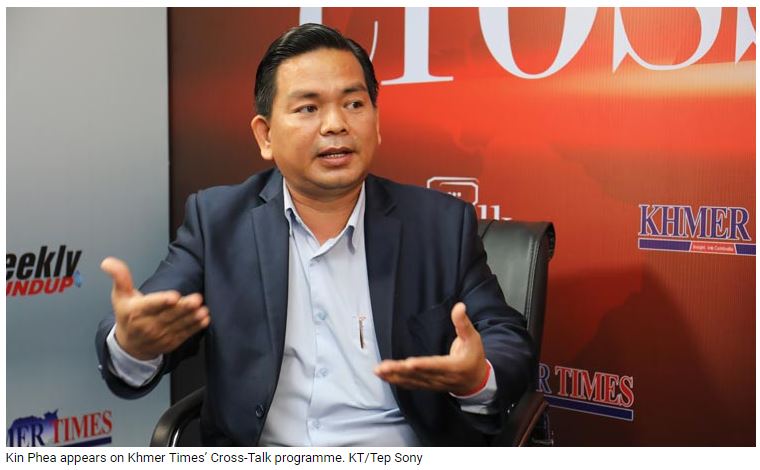Cambodia – Belt and Road: the good and bad
While the Chinese government describes its One Belt One Road, also known as Belt and Road Initiative, as an attempt to improve regional connectivity for a brighter future, some observers see it as a drive for the Red Giant’s dominance with a China-centred trading network in global affairs. Cambodia, meanwhile, has expressed strong support for the initiative. Is it the right choice? In an interview with Khmer Times, Kin Phea, director-general of the International Relations Institute at the Royal Academy of Cambodia, talked about the benefits that Cambodia could gain from BRI, as well as safeguards it should have.
KT: Can you briefly explain what the Belt and Road Initiative is?
Mr Phea: One Belt One Road was initiated by Xi Jinping, the President of the People’s Republic of China. He unveiled the initiative during visits to Kazakhstan and Indonesia in 2013. The main objective of OBOR is to promote regional cooperation and connectivity in various sectors, including infrastructure, trade and investment, as well as to facilitate people-to-people exchanges. This initiative aims at connecting China with important Asian countries’ economic channels and connect Asia with Europe and Africa.
KT: Why did Cambodia decide to join this initiative?
Mr Phea: We all know that China is both Cambodia’s biggest investment partner and import market. Joining BRI will bring considerable benefits to Cambodia. First of all, in terms of infrastructure, we can now that there are so many road construction projects funded by aid from China under BRI conditions. Cambodia has also been implementing railway projects and the construction of an expressway from Phnom Penh to Sihanoukville, which are also under the Chinese BRI. BRI also encourages the construction of a new airport to allow for more direct flight routes between Cambodia and China, which contributes to Cambodia’s tourism.
Regarding investment, Cambodia has witnessed the influx of investments from China, also thanks to BRI. Currently, there are more than 150 Chinese companies in the Kingdom, creating nearly 20,000 jobs. In the future, we strongly hope that the Chinese investments in Sihanoukville will create roughly 80,000 new jobs.
KT: Recently, Sri Lanka suffered from repercussions resulting from the huge debt it owed to China, leading it to hand over a port to a Chinese firm. Meanwhile, Malaysian Prime Minister Mahathir Bin Mohamad previously refused to carry on with a railway project due to high costs under this initiative. How about Cambodia? Will it be victimised by this initiative like Sri Lanka or refuse a development project, like Malaysia did, in the future?
Mr Phea: I think it depends on the intelligence in decision-making of our government leader. There should be measures for controlling debts under BRI. However, we believe that our government has already created these measures to control the risks from Chinese debts, which means it will not allow the debt to go past its ability to manage.
If the government assesses all the possible risks before borrowing money from China to invest in infrastructure such as hydropower stations, expressways and airports, there is no way that the country will face the problems like Sri Lanka or Malaysia. In addition, all development projects in Cambodia are now in a manageable framework and in addition, there is no longer sovereign guarantee. Many of these projects are BOT. Thus, we should not have any concern over it but we still have to pay attention to the projects, especially their costs and transparency.
KT: While tourist arrivals to Cambodia significantly increased last year, the country has also seen an increase in crimes committed by foreigners, especially Chinese people. As Cambodia is going deeper and deeper into BRI, what do you think the Kingdom should do to manage this issue?
Mr Phea: Security is a key point that determines the destiny of investment, especially tourism. It is a sensitive issue that the royal government has to focus on. I think it is an urgent matter that needs to be dealt with immediately because such an image can have great influences on scaring off investors and tourists. Both the Cambodian and Chinese governments have to set out mechanisms to curb the increasing crimes committed by foreigners and ensure security for those who want to do business and invest in Cambodia.
Source: https://www.khmertimeskh.com/50604195/belt-and-road-the-good-and-bad/


 English
English




